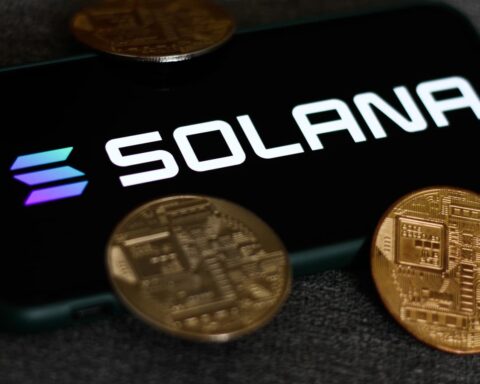Bitcoin experienced a notable recovery from its recent three-month lows on September 12, sparking skepticism among traders regarding the cryptocurrency’s price behavior.
Market data from Cointelegraph Markets Pro and TradingView reflected a rapid return to levels seen immediately after the weekly close of BTC/USD.
The preceding day had witnessed a sudden decline in Bitcoin’s value upon Wall Street’s opening, briefly pushing it below the $25,000 mark.
This performance marked its most significant decline since mid-June.
However, Bitcoin embarked on a subsequent comeback, surging by $1,000. Nevertheless, as of the time of writing, it was encountering resistance at the $26,000 level.
In anticipation of future price movements, on-chain monitoring resource Material Indicators had already issued a warning about an imminent “support test.” This was due to a decrease in bid liquidity in the order book’s lower levels.
Further analysis, both from Material Indicators and others, pointed out that previous occurrences of “rug pulls” in support levels had paradoxically led to positive outcomes in the Bitcoin market.
Large-volume traders were effectively clearing liquidity from the immediate vicinity of the spot price.
Co-founder Keith Alan even predicted that $24,750 would hold as support during a potential downturn, a prediction that remained accurate at the time of writing.
In a separate development, the DeFi Education Fund (DEF), an advocacy group for decentralized finance (DeFi), submitted a petition to the United States Patent and Trademark Office (USPTO) on September 7.
READ MORE: Coinbase CEO Foresees Crypto’s Major Role in 2024 Elections, Urges Clearer Regulations
This petition aimed to prompt a review of a patent owned by True Return Systems, a company accused by DEF of being a “patent troll.” Such entities seek to profit from patent-related lawsuits.
The patent, granted in 2018, claimed ownership of a process for “linking off-chain data to a blockchain.” DEF’s legal chief, Amanda Tuminelli, revealed that True Return had attempted to sell the patent as a nonfungible token (NFT) before subsequently filing lawsuits against DeFi protocols MakerDAO and Compound Finance in October.
Tuminelli asserted that True Return’s intention was to name defendants who couldn’t respond to the complaint, obtaining a default judgment.
The company would then seek to enforce the court’s ruling against token holders and repeat the process with other protocols that lacked the resources or means to challenge them in court.
DEF argued that the technology described in the patent was not innovative at the time of its granting and cited existing tech such as the InterPlanetary File System (IPFS) and decentralized storage platforms like Sia, Storj, and Swarm.
True Return Systems acknowledged a request for comment from Cointelegraph but had not provided an immediate response.
DEF’s petition to the USPTO aimed to protect the use and development of open-source software, prevent potential legal actions by True Return against crypto projects, and aid in the legal defense of MakerDAO and Compound.
True Return has a three-month window to optionally respond to the petition, after which the USPTO must decide whether to review the patent within six months and, ultimately, whether to cancel it within 12 months.
Other Stories:
Vitalik Buterin’s X Account Breached: Over $691K Lost to Malicious NFT Link
Rise of Senior Executives Leading Digital Asset Strategies Signals Investment Firm Transformation
Terra Classic Community Proposes Minimum Deposit Hike to Combat Spam




